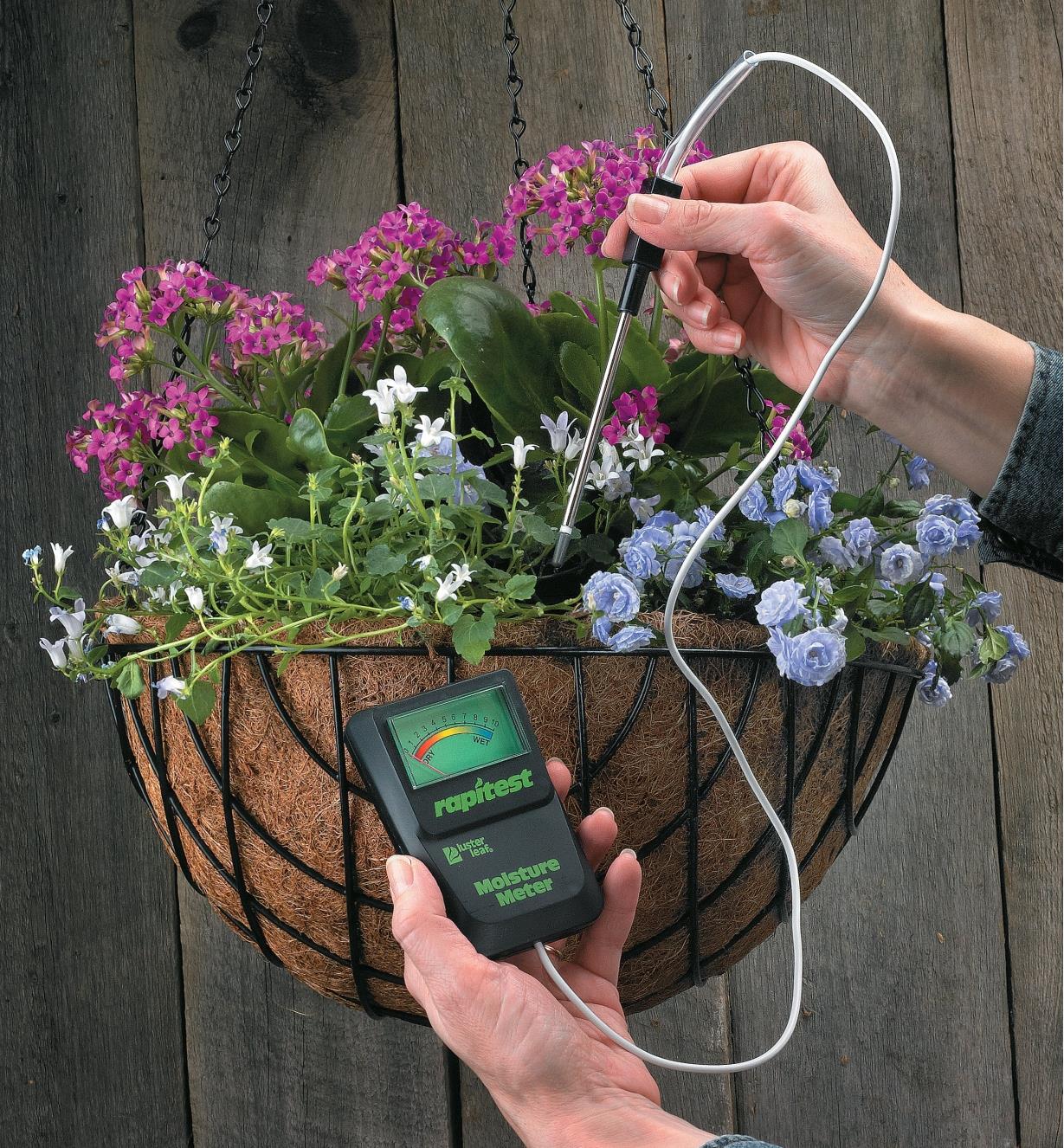Why Every Home Owner Demands a Moisture Meter: Trick Benefits and Functions
Why Every Home Owner Demands a Moisture Meter: Trick Benefits and Functions
Blog Article
The Ultimate Guide to Moisture Meters: A Comprehensive Review and Just How They Can Save You Cash
Dampness meters offer as vital devices in identifying and keeping track of moisture web content in products, assisting in avoiding pricey damages and guaranteeing the high quality of products. Recognizing the subtleties of various types of moisture meters, their applications, and the possible cost-saving advantages they provide can be a game-changer for businesses and specialists alike.
Kinds Of Dampness Meters
Various types of dampness meters are offered for different applications in numerous industries. One usual type is the pin-type wetness meter, which gauges the electrical resistance in between two pins inserted into a product. This kind is ideal for wood, drywall, and various other building products. Pinless wetness meters, on the various other hand, use electro-magnetic sensing unit plates to scan a bigger location without creating damages to the product's surface. Moisture Meter. These meters are ideal for rapidly examining moisture levels in big areas such as walls and floors.

In addition, there are also specialized moisture meters developed for specific products like dirt, grain, or hay. These meters provide precise wetness analyses customized to the distinct residential or commercial properties of the product being evaluated. Infrared dampness meters determine the thermal homes of a material to determine its wetness material non-invasively, making them useful for applications where pin or pinless meters may not be appropriate. Comprehending the various kinds of dampness meters offered can help markets select one of the most ideal tool for their particular moisture measurement requirements.

Advantages of Making Use Of Wetness Meters
Moisture meters use important advantages in precisely analyzing and keeping track of wetness degrees in diverse materials and atmospheres. One of the main advantages of using moisture meters is the prevention of possible damages created by excess wetness.
Additionally, utilizing wetness meters can cause boosted energy efficiency. By recognizing locations with high wetness degrees, such as leaks or inadequate insulation, changes can be made to boost energy preservation and minimize utility expenses. In agricultural settings, moisture meters play a crucial function in enhancing crop yields by enabling farmers to keep track of soil wetness degrees and make informed watering choices. On the whole, the benefits of using dampness meters span across numerous industries, supplying cost-efficient options and advertising far better quality assurance methods.
How to Pick the Right Moisture Meter
Picking the appropriate wetness meter involves thinking about crucial variables such as material compatibility, measurement range, and calibration accuracy. When choosing a dampness meter, it's vital to make sure that the meter is suitable for the particular product you will be testing. Various products have differing electrical buildings that can influence dampness readings, so choosing a meter created for your material is important for exact results. In addition, consider the measurement range of the wetness meter. Ensure that you can try here the meter can identify moisture levels within the array required for your applications. Calibration precision is another critical element to remember. Choose for a wetness meter with dependable calibration to guarantee specific and constant readings. Some meters may require regular calibration changes, so understanding the calibration process is essential. By carefully assessing these variables, you can pick a dampness meter that satisfies your requirements and provides precise moisture dimensions for your jobs.
Appropriate Methods for Moisture Meter Use

Price Cost Savings Through Wetness Meter Applications
How can the calculated usage of dampness meters cause considerable price savings across different industries? Wetness meters play a crucial function in price financial savings by avoiding potential damages and making sure quality assurance in different industries. In the farming industry, wetness meters help in determining the optimum time for harvesting crops, preventing over-drying or excess wetness that can influence the end product's top quality. This precise monitoring helps farmers avoid unnecessary losses and maximize their return.
Likewise, in building, wetness meters assist stop expensive problems by finding wetness levels in building products, such as wood or concrete, which can lead to architectural issues otherwise resolved immediately. By determining trouble areas beforehand, service providers can take restorative measures to stay clear of extensive fixings or replacements, ultimately conserving time and money.
In addition, in the food handling sector, moisture meters are essential for checking item high quality and making certain compliance with safety laws. By properly gauging moisture web content in food, suppliers can stop putridity, preserve freshness, and minimize look at here now waste, leading to substantial expense financial savings. Generally, the calculated application of dampness meters is a beneficial investment that can cause significant cost reductions and boosted performance across official source numerous sectors.
Verdict
In final thought, moisture meters are valuable devices for gauging and finding moisture degrees in numerous products. By using the right dampness meter and complying with appropriate strategies, users can successfully avoid pricey damages triggered by excess dampness.
Dampness meters serve as vital tools in finding and keeping track of moisture content in products, helping in avoiding costly damages and making sure the top quality of products. Infrared wetness meters determine the thermal buildings of a material to determine its wetness web content non-invasively, making them beneficial for applications where pin or pinless meters might not be suitable.Dampness meters offer vital advantages in properly evaluating and keeping track of dampness degrees in varied products and settings. In farming setups, dampness meters play an essential function in enhancing crop yields by allowing farmers to monitor dirt wetness levels and make informed watering choices.In final thought, moisture meters are useful devices for measuring and identifying moisture levels in numerous materials.
Report this page